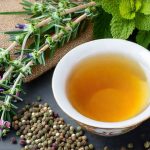Bladder discomfort – whether manifesting as frequent urges, painful sensations, or simply a feeling of fullness – can significantly disrupt daily life. Many factors contribute to these issues, ranging from dietary choices and lifestyle habits to underlying medical conditions. While professional medical evaluation is always the first step in addressing bladder concerns, incorporating gentle, supportive practices like herbal teas can often complement conventional care and offer soothing relief. This article explores a selection of body-friendly herbal teas traditionally used to promote bladder health and relaxation, emphasizing their properties and how they might be incorporated into a holistic wellness approach. Remember, this information is for educational purposes only and shouldn’t replace advice from your healthcare provider.
The world of botanical medicine offers a rich tapestry of plants that have been utilized for centuries to support various bodily functions. Herbal teas are often considered a gentle way to introduce the benefits of these plants into our systems, offering both physical and emotional well-being. When considering herbal remedies for bladder health, it’s important to focus on herbs known for their calming, anti-inflammatory, or diuretic (water-reducing) properties – but always with caution and awareness of individual sensitivities. The goal isn’t necessarily to eliminate urination altogether, but rather to support a balanced and comfortable urinary system function. Ultimately, the most effective approach involves understanding your body’s unique needs and working collaboratively with healthcare professionals. If you are looking for ways to further integrate wellness practices into your routine, consider exploring smart grocery choices that support bladder health.
Soothing Herbs for Bladder Relaxation
Several herbs have historically been associated with bladder health and relaxation. Cornsilk, derived from the silky strands of corn ears, is perhaps one of the most well-known. It contains compounds thought to possess mild diuretic properties, which can help flush out toxins and reduce inflammation in the urinary tract. However, it’s important to note that diuretic herbs should be used cautiously and are not appropriate for everyone, particularly those with kidney problems. Another option is Marshmallow root, known for its mucilaginous quality – meaning it creates a soothing, gel-like coating when mixed with water. This can help calm inflamed bladder tissues and reduce irritation. To further support your body’s natural healing processes, you might also investigate daily detox habits that won’t aggravate the bladder.
Chamomile tea, beloved for its calming effects on the nervous system, also extends benefits to the urinary tract. Its anti-inflammatory properties may help alleviate discomfort associated with bladder sensitivity. It’s important to choose high-quality chamomile tea, ideally organic, to avoid potential contaminants or additives. The gentle nature of chamomile makes it a particularly good choice for those seeking both physical and emotional relaxation, as stress can often exacerbate bladder issues. Finally, Parsley is sometimes included due to its mild diuretic effect, but again, moderation and awareness are key. For additional support during stressful times, exploring breathing cycles can promote relaxation.
Gentle Diuretics & Anti-Inflammatories
Many bladder discomforts stem from inflammation or fluid retention. Certain herbs offer gentle support in these areas without being overly harsh on the system. Dandelion leaf, for example, is a natural diuretic that encourages kidney function and can help reduce water retention, potentially easing pressure on the bladder. However, it’s crucial to ensure adequate hydration when using diuretic herbs to prevent dehydration. Uva Ursi (bearberry) has traditionally been used as an antiseptic and mild astringent for urinary tract health. It contains arbutin, which converts into hydroquinone in the body – a substance with antibacterial properties.
However, Uva Ursi should be used with caution and only under the guidance of a qualified herbalist or healthcare professional due to potential toxicity with prolonged use. Its astringent nature can also cause digestive upset in some individuals. Ginger tea isn’t specifically known for bladder health but its potent anti-inflammatory properties can help reduce overall inflammation in the body, which may indirectly benefit urinary function. Remember that consistency is key when incorporating herbal teas into your routine; regular consumption often yields more noticeable results than sporadic use. Complementing these practices with a focus on hydration strategies can optimize bladder health.
Preparing & Enjoying Your Herbal Teas
Making a proper cup of herbal tea goes beyond simply steeping a teabag in hot water. To maximize the benefits and flavor, consider these steps:
- Source Quality Herbs: Opt for organic, loose-leaf herbs whenever possible to ensure purity and potency.
- Water Temperature: Different herbs require different temperatures. Generally, delicate flowers like chamomile benefit from slightly cooler water (around 175°F/80°C), while roots and barks can withstand boiling water.
- Steeping Time: Allow the tea to steep for the appropriate amount of time – usually 5-10 minutes – to fully extract its beneficial compounds. Longer steeping times often result in stronger, more flavorful teas.
- Cover While Steeping: Covering your cup or teapot while it’s steeping helps retain volatile oils and aromatics, enhancing both flavor and therapeutic properties.
Beyond the preparation, paying attention to how you experience tea can deepen its benefits. Find a quiet space, savor each sip, and allow yourself to fully relax while enjoying your herbal infusion. This mindful approach can enhance both the physical and emotional aspects of tea drinking. For a more holistic wellness routine, consider incorporating routine-based calm into your daily life.
Potential Considerations & Contraindications
While generally safe for most people, herbal teas are not without potential considerations. Individuals with pre-existing medical conditions, such as kidney disease or heart problems, should consult their healthcare provider before incorporating diuretic herbs into their routine. Similarly, those taking medications should check for potential interactions. Some herbs can interact with certain drugs, altering their effectiveness or causing unwanted side effects.
Pregnant and breastfeeding women should exercise extra caution when using herbal remedies, as some herbs may not be safe during these times. It’s also important to be aware of potential allergies. If you experience any adverse reactions, such as skin rashes, digestive upset, or difficulty breathing, discontinue use immediately and seek medical attention. Finally, remember that herbal teas are a complementary approach – they should never replace conventional medical treatment. To further understand your body’s unique needs, consider choosing the right supplements for bladder support.
Listening to Your Body & Seeking Guidance
The most important aspect of incorporating herbal teas into your wellness routine is listening to your body. Pay attention to how each tea affects you individually and adjust your intake accordingly. What works well for one person may not work for another, so experimentation and self-awareness are key. If you’re unsure about which herbs are right for you or have any concerns about potential interactions, seeking guidance from a qualified herbalist or healthcare professional is always recommended. They can provide personalized recommendations based on your specific health needs and circumstances. Ultimately, the goal is to find gentle, supportive ways to enhance your overall well-being and promote bladder comfort. Additionally, understanding the best teas for urological soothing can further refine your approach.





















